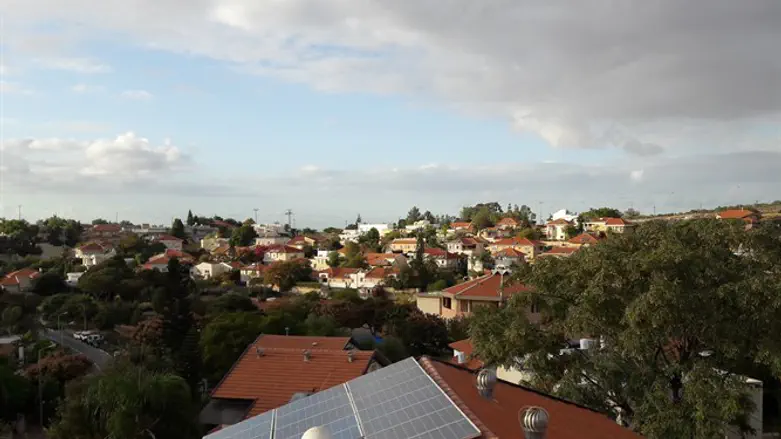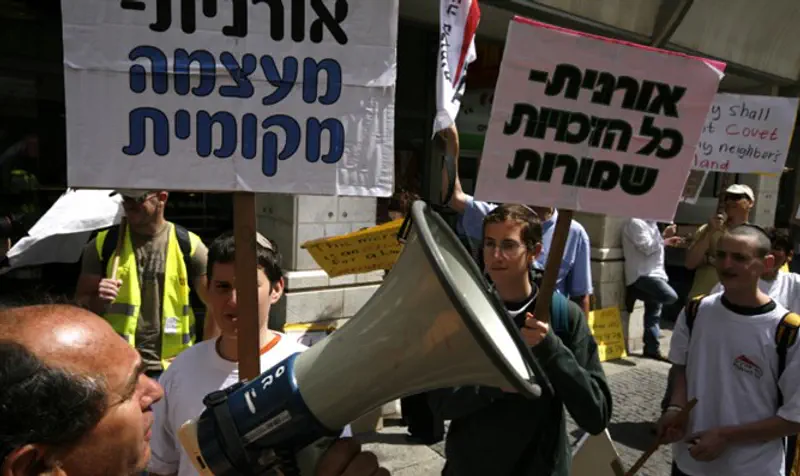
A special committee formed by the Director-General of the Interior Ministry called for the establishment of the fifth Israeli city in Judea and Samaria on Wednesday, following a half-year study on the proposed unification of four existing Israeli towns in western Samaria.
The committee published its recommendations Wednesday, and delivered the report to Interior Minister Aryeh Deri (Shas). The report backs a proposal to unite the four towns of the Shaar Hashomron (Gate of Samaria) region along Route 505 east of Kfar Kassem and Rosh Haayin into a single city.
The towns to be affected include the predominantly secular town of Oranit, home to some 9,000 Israelis; Shaarei Tikva, and its 5,800 residents; the largely Religious Zionist town of Elkana, with some 4,000 residents, and Etz Efraim, with some 2,200 residents. Oranit and Elkana are both independent townships, while Etz Efraim and Shaarei Tikva are administered by the Samaria Regional Council.
If combined into a single city, the new municipality would be home to more than 21,000 people, making it the smallest city in Judea and Samaria.
At present, there are four Israeli cities in Judea and Samaria: Maaleh Adumim, with 38,000 residents, was recognized as a city in 1991; Ariel, east of Shaar Hashomron in Samaria with 22,000 residents was given city status in 1998; the predominantly haredi community of Beitar Illit in Judea, home to 52,000 people, was declared a city in 2001; and the haredi town of Modiin Illit in southwest Samaria, home to 67,000, was declared a city in 2008.
While the Interior Ministry has touted the plan as being to the benefit of the four communities, claiming that it will enable construction in hitherto unused land in between the existing municipal boundaries, residents are concerned the move could lower the quality of life in their towns.
Residents protested a similar proposal by the ministry in 2008, eventually forcing the Interior Ministry to back down from the planned unification.

Jewish Home MK Nissan Slomiansky, a long-time resident of Elkana and a former mayor of the town, debated the proposal at a Knesset committee hearing in 2008, criticizing the plan and noting the widespread opposition among residents of Elkana.
Forcing the four towns together would dilute their unique character, Slomiansky argued.
“Another important thing is the character of the towns – Elkana was established as a Religious Zionist town. There are some secular families there, but everyone knows that the character of the community is National Religious – people don’t drive there during the Sabbath, the educational institutions are state religious schools, and people want to protect that [character].”
“Oranit has its own style, and I respect that, and Shaarei Tikva is somewhere in the middle.”
The Interior Ministry has also touted the proposed merger as a cost-saving measure, allowing the state to cut administrative positions in the four communities. But locals worry the move would also reduce the quality of municipal services, including education, utilities, and maintenance of parks.
Deputy Foreign Minister Tzipi Hotovely (Likud) expressed support for the plan, saying unification was the “right move” for the four western Samaria communities and that it would send a positive message regarding the settlement movement in Judea and Samaria.
“Unifying the four Samaria towns and merging them into a city is the right move and a necessary one, and it sends a clear message to the world: the settlement enterprise is growing stronger.”
